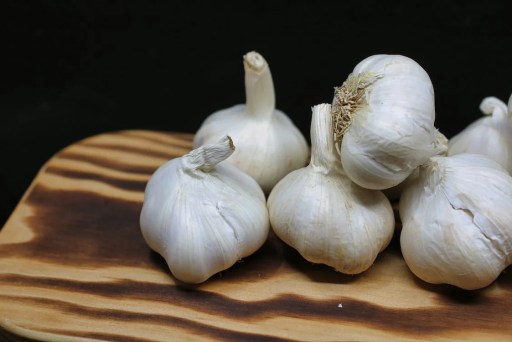Understanding the Immune System: A Brief Overview
The immune system is a complex network of cells, tissues, and organs that work together to defend the body against harmful pathogens, such as bacteria, viruses, and parasites. It plays a crucial role in maintaining overall health and well-being. Understanding how the immune system functions is essential in finding ways to boost its efficiency naturally.
The immune system consists of two main components: the innate immune system and the adaptive immune system. The innate immune system is the body’s first line of defense and provides immediate, non-specific protection against pathogens. It includes physical barriers like the skin and mucous membranes, as well as immune cells like neutrophils and macrophages.
On the other hand, the adaptive immune system is a more specialized defense mechanism that develops over time. It recognizes specific pathogens and creates a targeted response to eliminate them. This system involves immune cells called lymphocytes, including B cells and T cells, which produce antibodies and coordinate immune responses.
The Power of a Healthy Lifestyle: Key Factors for a Strong Immune System
Maintaining a healthy lifestyle is crucial for a strong immune system. Several key factors contribute to its optimal functioning:
Balanced Diet: A well-balanced diet rich in fruits, vegetables, whole grains, lean proteins, and healthy fats provides essential nutrients that support immune function. Nutrients like vitamin C, vitamin D, zinc, and selenium play a vital role in enhancing immune response.
Hydration: Staying hydrated is essential for overall health, including immune function. Water helps transport nutrients to cells, flush out toxins, and maintain the proper functioning of various bodily systems.
Avoiding Smoking and Excessive Alcohol Consumption: Smoking weakens the immune system and increases the risk of respiratory infections. Excessive alcohol consumption can also impair immune function and make the body more susceptible to infections.
Maintaining a Healthy Weight: Obesity can negatively impact immune function and increase the risk of chronic diseases. Maintaining a healthy weight through regular exercise and a balanced diet is crucial for a strong immune system.
Good Hygiene Practices: Practicing good hygiene, such as regular handwashing, can help prevent the spread of infections and reduce the burden on the immune system.
Nourishing Your Body: Essential Nutrients for Immune Support
A well-nourished body is better equipped to fight off infections and maintain a robust immune system. Several essential nutrients play a crucial role in supporting immune function:

Vitamin C: This powerful antioxidant is known for its immune-boosting properties. It helps stimulate the production of white blood cells, which are essential for fighting off infections. Citrus fruits, berries, kiwi, and bell peppers are excellent sources of vitamin C.
Vitamin D: Adequate levels of vitamin D are crucial for a strong immune system. It helps regulate immune responses and enhances the function of immune cells. Sunlight exposure, fatty fish, fortified dairy products, and egg yolks are good sources of vitamin D.
Zinc: Zinc is involved in various immune functions, including the development and activation of immune cells. It also helps regulate inflammation. Foods rich in zinc include oysters, beef, poultry, beans, and nuts.
Selenium: Selenium is a trace mineral that supports immune function by enhancing the activity of immune cells and reducing inflammation. Brazil nuts, seafood, whole grains, and eggs are good sources of selenium.
Probiotics: Probiotics are beneficial bacteria that promote a healthy gut microbiome. They help regulate immune responses and protect against harmful pathogens. Yogurt, kefir, sauerkraut, and kimchi are excellent sources of probiotics.
Supercharge Your Immunity with Antioxidant-Rich Foods
Antioxidants are compounds that help protect the body from oxidative stress caused by free radicals. They play a crucial role in supporting immune function and reducing the risk of chronic diseases. Incorporating antioxidant-rich foods into your diet can supercharge your immunity:
Berries: Blueberries, strawberries, raspberries, and blackberries are packed with antioxidants, including vitamin C and flavonoids. They help boost immune function and reduce inflammation.
Dark Leafy Greens: Spinach, kale, and Swiss chard are rich in antioxidants like vitamin C, vitamin E, and beta-carotene. They also provide essential nutrients that support immune health.
Citrus Fruits: Oranges, grapefruits, lemons, and limes are not only high in vitamin C but also contain other antioxidants that help strengthen the immune system.
Nuts and Seeds: Almonds, walnuts, sunflower seeds, and chia seeds are excellent sources of antioxidants, healthy fats, and vitamin E. They help reduce inflammation and support immune function.
Green Tea: Green tea is rich in polyphenols, which are powerful antioxidants. Regular consumption of green tea can enhance immune function and protect against various diseases.
The Role of Exercise in Strengthening Your Immune System
Regular physical activity is not only beneficial for overall health but also plays a significant role in strengthening the immune system. Exercise has been shown to have numerous positive effects on immune function:
Boosts Immune Cells: Exercise helps increase the circulation of immune cells in the body, allowing them to detect and eliminate pathogens more efficiently.
Reduces Inflammation: Chronic inflammation can weaken the immune system. Regular exercise helps reduce inflammation and promote a healthy immune response.
Enhances Antibody Response: Exercise has been shown to enhance the production of antibodies, which are crucial for fighting off infections.
Improves Sleep Quality: Regular exercise can improve sleep quality, which is essential for a strong immune system. During sleep, the body repairs and rejuvenates itself, including the immune system.
Manages Stress: Exercise is a natural stress reliever. Chronic stress can weaken the immune system, making the body more susceptible to infections. Engaging in physical activity helps reduce stress and boost immune function.
Prioritizing Sleep: How Restful Slumber Boosts Immunity
Getting adequate sleep is vital for maintaining a strong immune system. During sleep, the body repairs and regenerates itself, including the immune system. Lack of sleep or poor sleep quality can weaken immune function and increase the risk of infections. Here are some tips for improving sleep quality:
Stick to a Schedule: Establish a consistent sleep schedule by going to bed and waking up at the same time every day, even on weekends.
Create a Sleep-Friendly Environment: Make your bedroom a comfortable and relaxing space. Keep the room cool, dark, and quiet. Use comfortable bedding and pillows.
Limit Exposure to Electronic Devices: The blue light emitted by electronic devices can interfere with sleep. Avoid using smartphones, tablets, or computers for at least an hour before bedtime.
Practice Relaxation Techniques: Engage in relaxation techniques like deep breathing, meditation, or gentle stretching before bed to help calm the mind and prepare the body for sleep.
Avoid Stimulants: Limit the consumption of caffeine and avoid heavy meals, nicotine, and alcohol close to bedtime, as they can disrupt sleep patterns.
Stress Management Techniques for a Resilient Immune System
Chronic stress can have a detrimental effect on the immune system, making the body more susceptible to infections. Managing stress is crucial for maintaining a resilient immune system. Here are some effective stress management techniques:
Exercise Regularly: Physical activity is a natural stress reliever. Engaging in regular exercise can help reduce stress levels and boost immune function.

Practice Mindfulness and Meditation: Mindfulness and meditation techniques can help calm the mind, reduce stress, and improve overall well-being. Incorporate these practices into your daily routine.
Get Social Support: Connecting with loved ones and seeking support from friends and family can help alleviate stress. Share your feelings and concerns with trusted individuals.
Engage in Relaxation Activities: Find activities that help you relax and unwind, such as reading, listening to music, taking a bath, or practicing hobbies.
Prioritize Self-Care: Take time for yourself and engage in activities that bring you joy and relaxation. This can include practicing self-care rituals like taking a long bath, getting a massage, or indulging in a hobby.
Natural Remedies and Supplements to Enhance Immune Function
In addition to a healthy lifestyle, certain natural remedies and supplements can help enhance immune function. It is important to note that these should not replace a balanced diet or medical advice, but rather be used as complementary measures. Here are some natural remedies and supplements that may support immune health:
Echinacea: Echinacea is an herb that has been traditionally used to boost immune function. It may help reduce the duration and severity of colds and respiratory infections.
Elderberry: Elderberry is rich in antioxidants and has been used for centuries to support immune health. It may help reduce the symptoms and duration of colds and flu.
Garlic: Garlic has antimicrobial properties and may help enhance immune function. Incorporate fresh garlic into your meals or consider taking garlic supplements.

Vitamin C Supplements: If you are unable to meet your daily vitamin C requirements through diet alone, consider taking vitamin C supplements to support immune function.
Probiotic Supplements: Probiotic supplements can help promote a healthy gut microbiome and support immune function. Consult with a healthcare professional to determine the most suitable probiotic strain for your needs.
Conclusion: How to Boost Your Immune System Naturally
Boosting your immune system naturally is essential for maintaining overall health and well-being. Understanding the immune system and adopting a healthy lifestyle are key factors in supporting immune function. Nourishing your body with essential nutrients, incorporating antioxidant-rich foods, engaging in regular exercise, prioritizing sleep, managing stress, and considering natural remedies and supplements can all contribute to a strong and resilient immune system. By implementing these strategies, you can enhance your body’s natural defense mechanisms and improve your overall immune health.






Leave a Reply
You must be logged in to post a comment.